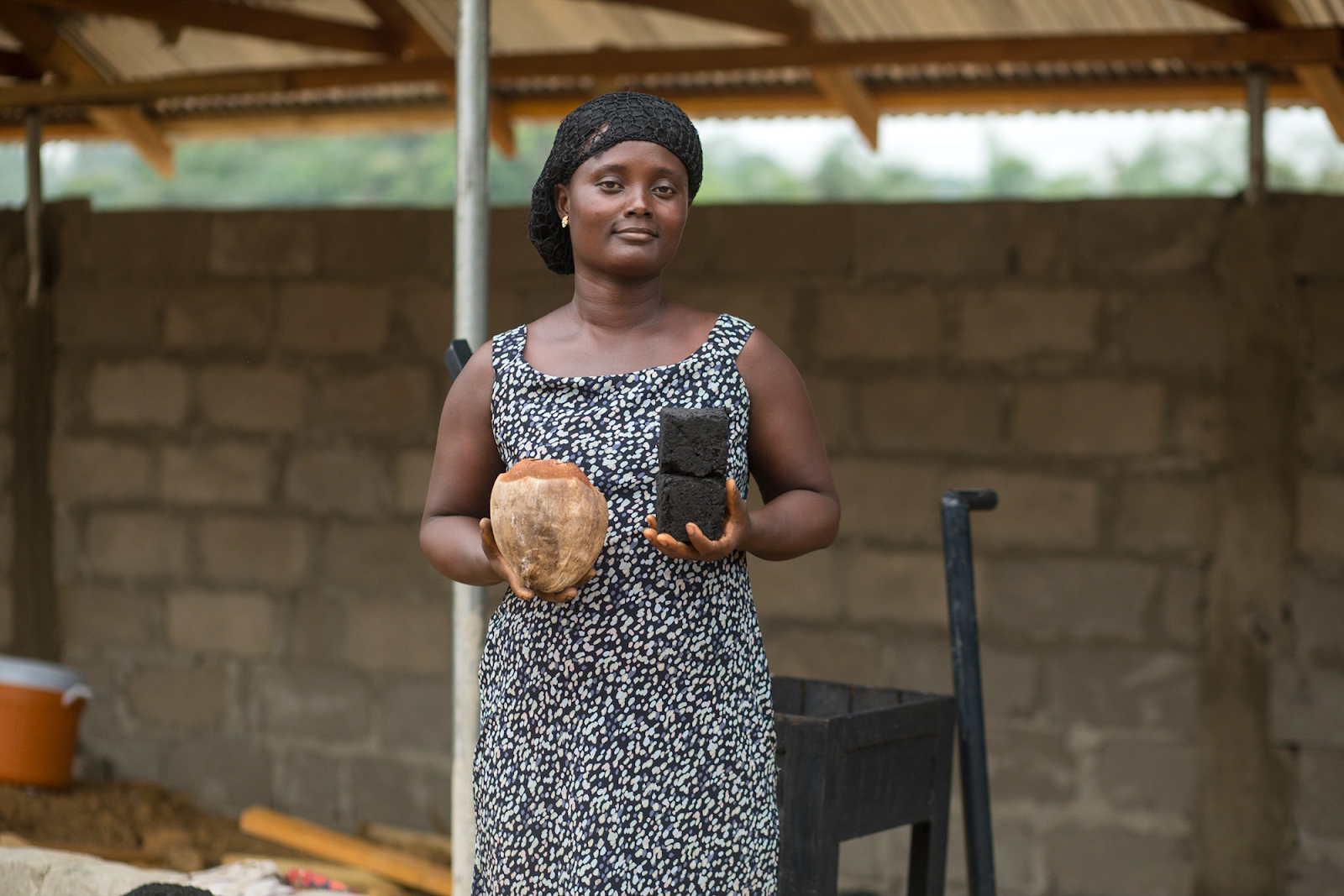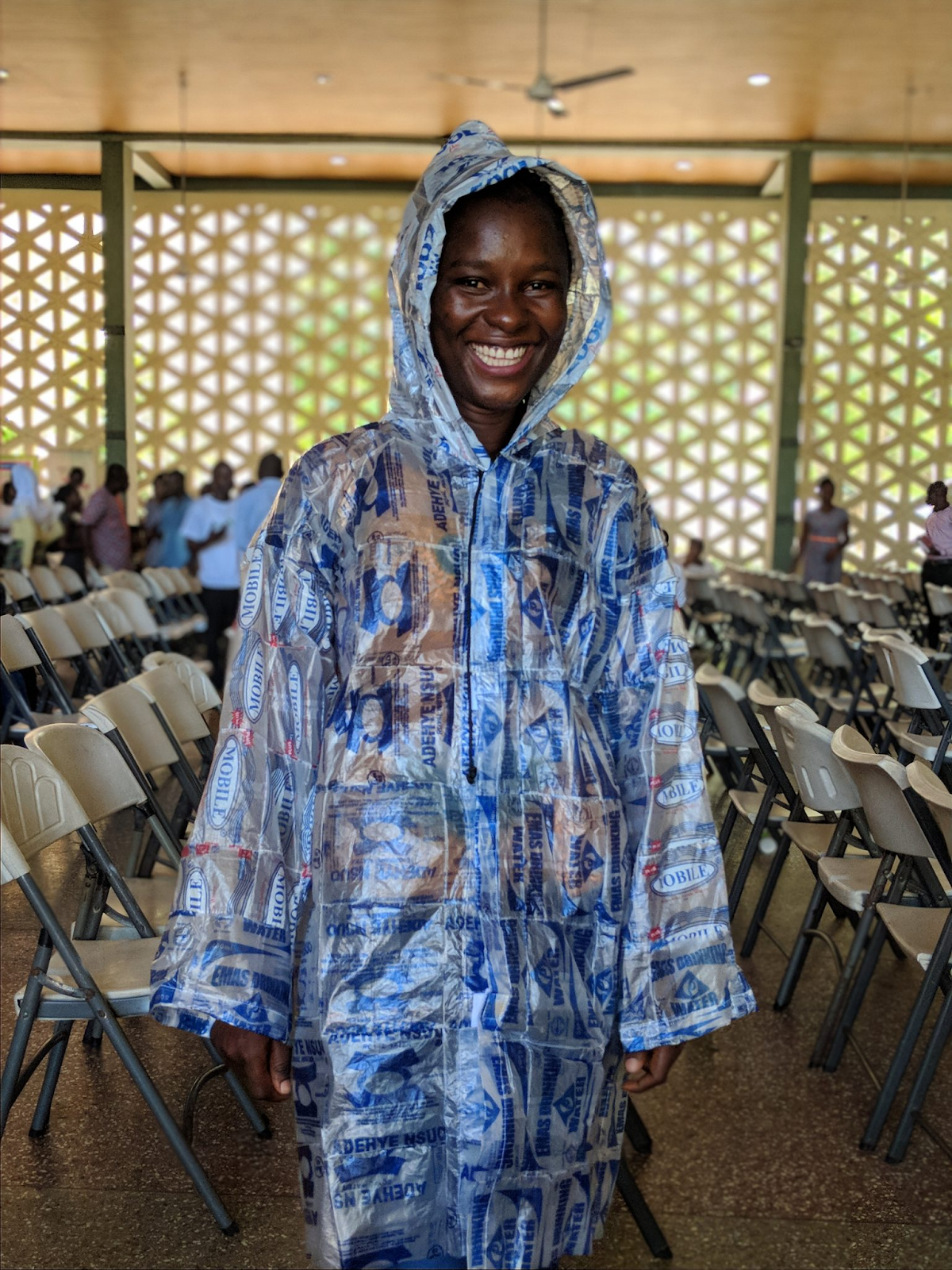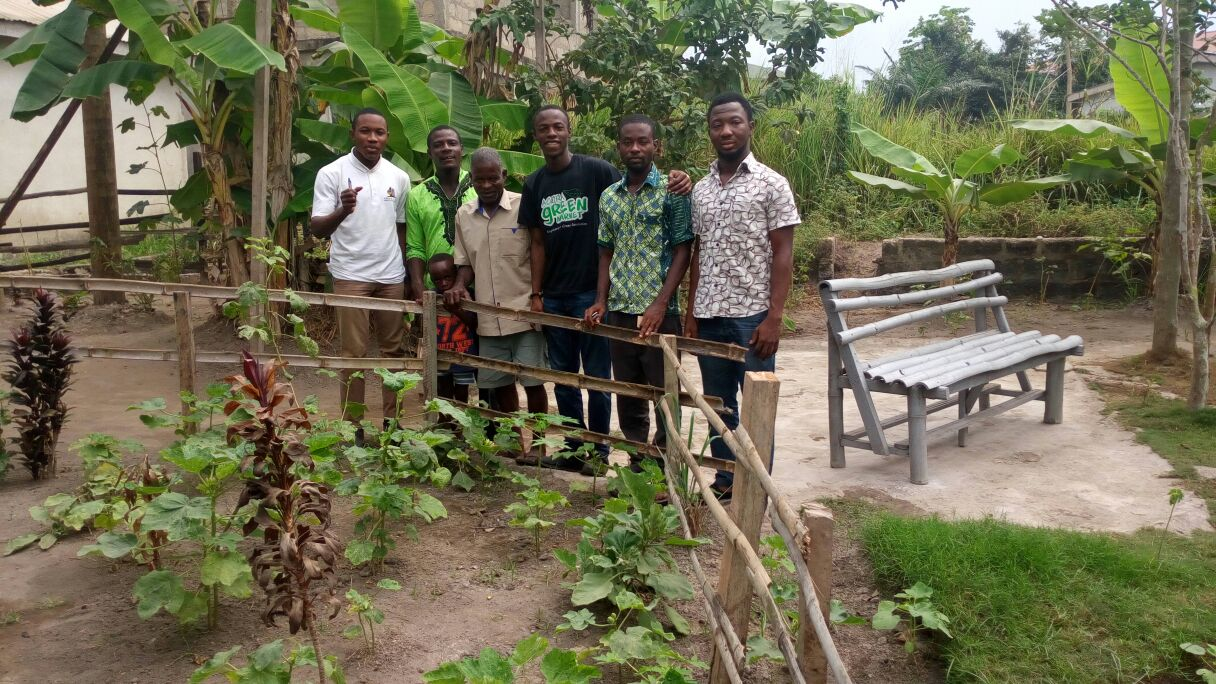
Share
Sustainable Community Project
Our Sustainable Community Project (SCP) in Adansi South District of Ghana is the first community-led circular economy waste management project in Ghana. Our aim to create a local circular economy model by mid-2020 that can be replicated in other communities. We want to create a zero waste model in the long term. As our community students say “Waste is not waste until it is wasted”.
Following our pilot in 2016/2017 in Cape Coast, we learned significant lessons and decided to implement the SCP in a rural-urban township, New Edubiase in Ashanti Region, Ghana. New Edubiase is community of about 15,000 people with over 42 percent of the population being children below 15 years. The method of solid waste management by households is largely open-burning and this is the same method adopted by the local waste management unit.
Hence, our project is critical to reduce the exposure and vulnerability of young people and the broader community to air pollution and sanitation challenges. The project is executed in partnership with the local government office and business consulting partners (Challenges Group Ghana) to ensure it’s economic viability.
The project is in three folds, with a member of the community leading each of the three activities as an entrepreneur:
Composting: producing compost for young farmers through the collection of organic and agricultural waste within the community. The project collaborates with waste pickers to gather organic waste from markets and food stores. There waste is composted using local composting methods and sold to farmers at an affordable rate to generate income for the waste pickers and the compost making entrepreneurs.
Recycling Arts: producing durable bags and other domestic items from plastic waste. Water sachets comprise of the majority of waste that engulfs the average Ghanaian community. Through this project, we are providing free training to unemployed young girls to learn the art of converting these single-use plastic wastes into durable products that are demand-driven.

Charcoal Briquette: Producing briquette from agricultural waste as a replacement for wood fuel. The traditional charcoal production from wood is leading to large scale deforestation and threatening the ecological health of the forest ecosystem. Additionally, cooking with wood fuel is affecting the health of women due to the high rate of indoor air pollution resulting from burning wood.

The Sustainable Community Project has been designed by the Green Africa Youth Organization following our discovery of inappropriate waste handling in both rural and urban areas across the country. We had identified this through our numerous environmental outreach and sanitation workshops organized across the country. Inappropriate organic waste disposal has led to an increase in sanitation-related diseases such as cholera and diarrhoea in impoverished communities, posing an environmental hazard to human health. Meanwhile, organic waste, if well managed can serve as compost to ensure food security in impoverished communities.
Through household education on pit composting, the project seeks to eliminate inappropriate disposal of solid organic waste and to provide nutritious organic food to families through organic farming.
The project commenced in Cape Coast with a series of environmental sanitation workshop for students.

During the last quarter of 2016, we started the household stage of the project where we selected five households in the Cape Coast to initiate the waste segregation and composting. We provided dustbins to the houses, and they separate their organic waste for composting while we gather the plastic waste at a different location. Early 2017, we entered into an agreement with Cyclus Elmina Recycling Firm. Cyclus will now collect the plastic waste we gather from the households.
As the project is in its early stages, we are hoping to add more households to the project during its actual implementation stage while adding additional economic components through the waste management value chain. As a non-profit organization, this pilot was made possible entirely by donations from our volunteers and mentors.
Regardless, in the long term, the project is designed to be very sustainable as compost is used in setting up gardens for the households and the produce is sold to generate income for continuation. Agricultural waste being burnt in communities will be utilized for ecological purposes, and plastic and electronic waste utilized for making valuable household products and low-tech electronics.
Ultimately, GAYO seeks to create a zero-waste model in Africa for rural-urban townships.
